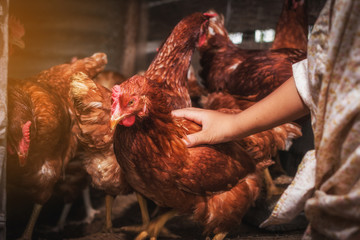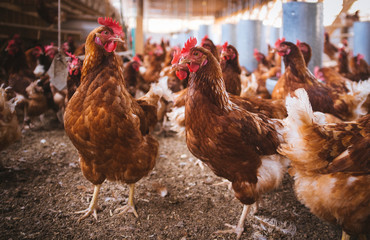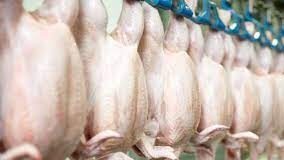
The performance of any being is governed by the synchronization of various systems. Excretory system is one of the most important systems of body, which help in excretion of water and metabolic wastes and to regulate acid-base balance in the bird’s body. Animals accumulate ammonia, urea, uric acid, carbon dioxide, water and ions like Na+, K+, Cl–, phosphate, sulphate, etc., either by metabolic activities or by other means like excess ingestion. These substances have to be removed totally or partially. The excretory system in the domestic fowl consists of the two kidneys, each with a ureter that carries the urine produced by the kidneys to the cloaca where it leaves the body. The most important and main organ of the excretory system is the kidney,which needs utmost care to keep it healthy and working. When the kidneys are diseased or damaged and unable to carry out their functions efficiently, the animal becomes debilitated and death often occurs quickly.

Like almost all birds, the domestic fowl does not have a bladder as is found in most mammals and amphibians. The urine leaves the ureters and enters the cloaca where it is moved by reverse peristalsis into the large intestine, which permits excess water to be re-absorbed before elimination. This re-absorbed water is available for use by the bird. In poultry, uric acid is the result of purine and protein metabolism. The liver produces uric acid, which is then expelled by the kidneys. Birds are uricotelic, meaning they lack the enzyme uricase, which, along with the fact that they conserve water, allows them to expel urine as semi-solid uric acid in their faeces.It is usually passed as a paste and is deposited as a whitish or cream cap on some faecal stools. When the kidneys are not functioning as efficiently as normal, or sometimes when a very high protein diet is provided, there will be large quantities of uric acid in the blood and the system may be unable to cope. The kidney tubules are likely to swell with accumulated urate deposits and when this happens, the white lines are clearly visible on the surface of the kidneys. The accumulation may lead to damage of the kidney cells which leads to nephritis. The high concentration of uric acid in the blood may result infiltration through the capillary walls which leads to visceral gout, which is when a whitish deposit is found on the surface of many visceral organs.
Gout: Most common kidney dysfunction in birds
Gout is caused by a disruption in the uric acid excretion metabolic pathway. As a result, it develops when uric acid synthesis exceeds the capacity of the kidneys to excrete it, or when renal function is damaged and the created uric acid is not excreted. The latter is the more common cause of gout attacks. The buildup of uric acid in the blood and bodily fluids is caused by reduced uric acid excretion.As a result, it is more likely to precipitate in various tissues.
Deposits are made up of white chalky needle-shaped shiny crystals known as ‘tophi’ in both forms and based on the areas of uric acid deposition it is categorized as follows:
- Gout caused by the deposition of uric acid crystals in the visceral organs, such as the kidney, liver, heart, and gut is Visceral gout. It is the more severe and common type of gout seen in chickens. It has a high mortality rate in young chicken, ranging from 15% to 35%.
- Articular gout is uric acid crystal deposition in the joints, ligaments, and tendon sheath. It is a type of gout that is persistent and has a genetic propensity. It is a rare occurrence in poultry.
In gout, uric acid levels in the blood can reach 44mg/100ml, compared to 5-7mg/100ml in a healthy bird. High levels of uric acid in the blood and/or uric acid deposits in tissues can cause mechanical damage and thereby disrupt their function, resulting in growth depression and death.
Various factors, but loopholes in poultry nutrition complicate the genesis of gout and feeding practices become a prime factor:
- Calcium: Phosphorus Ratio – Calcium-sodium-urate crystals form when there is too much calcium in the diet and not enough phosphorus available. Low phosphorus aggravates the development of urate crystals because it serves as a urine acidifier.
- High vitamin D3 levels boost calcium absorption from the intestines, which can promote urate crystal production and deposition.
- Long-term vitamin A deficiency induces tubular epithelium sloughing and blockage, leading in urate buildup in the kidney.
- High dietary protein levels have little effect on healthy kidneys. However, feed containing more than 30% crude protein can be harmful in the case of pre-existing renal disease. This causes an increase in uric acid production, which affects renal function.
- Sodium overdose puts the kidneys under additional strain. Excessive sodium bicarbonate use raises urine alkalinity, which can lead to kidney stone formation. Hard water with a high salt concentration puts a strain on the kidneys as well.
- Sulphates – Gout is favoured by decreased calcium resorption, which results in excessive calcium release through urine.
- Adding urea to protein supplements increases the nitrogenous component, which boosts uric acid production even more. Gout can develop because of this, especially if kidney impairment is present.
- Mycotoxins such as Ochratoxin, Citrinin, and numerous pesticide/insecticide residues wreak havoc on kidney tissue, inflaming the tubules and ureters.
- Water deprivation, due to mechanical malfunction, may affect kidney function, but research has not demonstrated a direct result in gout.
- Antibiotics, such as sulfas and aminoglycosides, are eliminated from the body via the kidneys and are potentially nephrotoxic, particularly when water intake is restricted.
Ways to contain kidney damage and rejuvenate kidney health
Removal of the above-mentioned causes and modification of diet help the birds to get rid of gout problems. Inclusion of phytogenics may help the birds to reverse the damage caused by urate crystals or other causatives. Nutritionists suggest the inclusion of acidifiers, electrolytes and vitamins in the diet to prevent gout problems effectively.
Acidifiers: Acidifying the urine using acidifiers like ammonium chloride, potassium chloride and ammonium sulphate help to lower the urine pH that in turn favours uric acid excretion. It also helps to dissolve the kidney stones and preserves functional renal mass of affected birds.
Electrolytes: It is necessary to maintain an ideal electrolyte balance. The salt content of feed should be carefully monitored to ensure that it does not exceed 0.5 per cent. Here, sodium from water sources must also be taken into account. In cases where gout is present, sodium from sodium bicarbonate sources should be minimized. In gout, providing more electrolytes through water aids in flushing out uric acid crystals and lowering of mortality as well.
Vitamins: Ensure adequate levels of A, D3, K and B complex vitamins. Vitamin A is an essential vitamin for chickens, and if they are receiving a vitamin A-deficient diet for any length of time, it can cause damage to the lining of the ureters leading to gout. Not all commercial chicken feeds contain vitamin A, and in those that do, the amount degrades over time, especially when it is exposed to sunlight. < 20 KIU/kg of vitamin A added to the diet may be of benefit.
Herbal extracts: Very recently, the inclusion of herbs or herbal extracts in the diet of birds has been found effective in revitalizing kidney functions. Silymarin, derived from the Silybum marianum plant, activates kidney cells and speeds up cell proliferation. It increases lactate dehydrogenase activity (LDH) in kidney cells that have been injured by nephrotoxic medicines and enhances protein and DNA production. Allicin helps people with chronic kidney disease by lowering blood pressure, reducing oxidative stress, and increasing renal function. By scavenging free radicals and hydroxyl radicals, allicin has antioxidant effects. Terminalia chebula phenolic extracts reduce LPO and restore Glutathionine S-transferase and Glutathionine reductase activity, making them renoprotective. Extracts of Boerhavia diffusa protect the kidneys from drug-induced nephrotoxicity. Tinosporacordifolia supplementation decreases the body’s absorption of sugar-derived carbs and helps to prevent diseases like nephropathy.
Many combinations of acidifiers, electrolytes, vitamins and herbal extracts have been formulated to prevent kidney dysfunctions and gout conditions. Renosafe, Nephcare, Heplus solutions containing acidifiers, sodium citrate, vitamin A and herbs like Silybum marianum, Terminalia chebula, Allium sativum and Boerhavia diffusaetc has been found to be impressive in results. They have been able to revitalise kidney functions and repair damaged kidney epithelium. They favour more excretion of uric acids by lowering urine pH. The antioxidant properties of herbs may protect the kidneys from oxidants and free radicals. While the nutritionists and poultry specialists found the combinations of herbal extracts with acidifiers, electrolytes and vitamins to be effective in preventing kidney dysfunctions, more research and trials need to be carried to promote optimum kidney health.
More details can be reached at www.nutricare.in

Dr Vandana Sharma, Dr Asra Khurshid
















